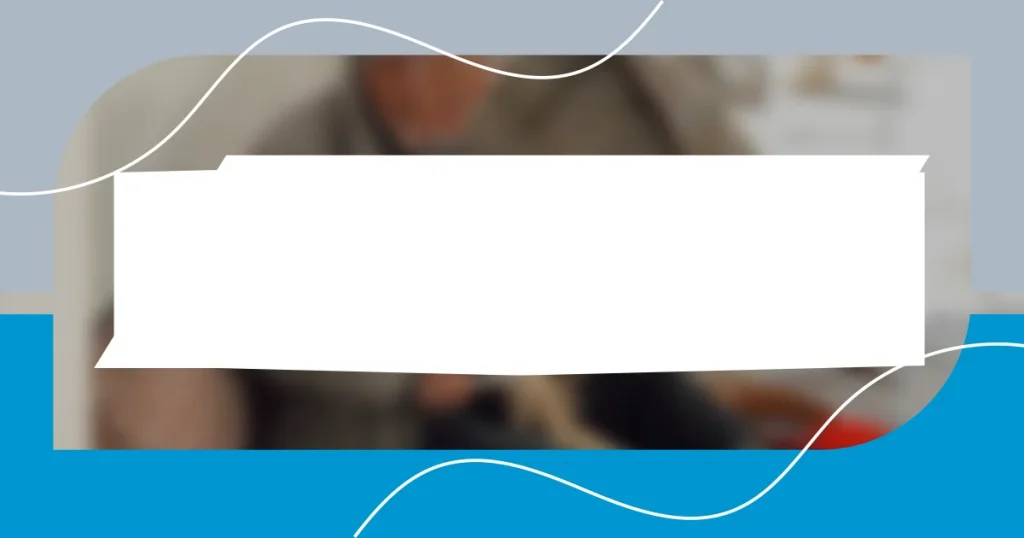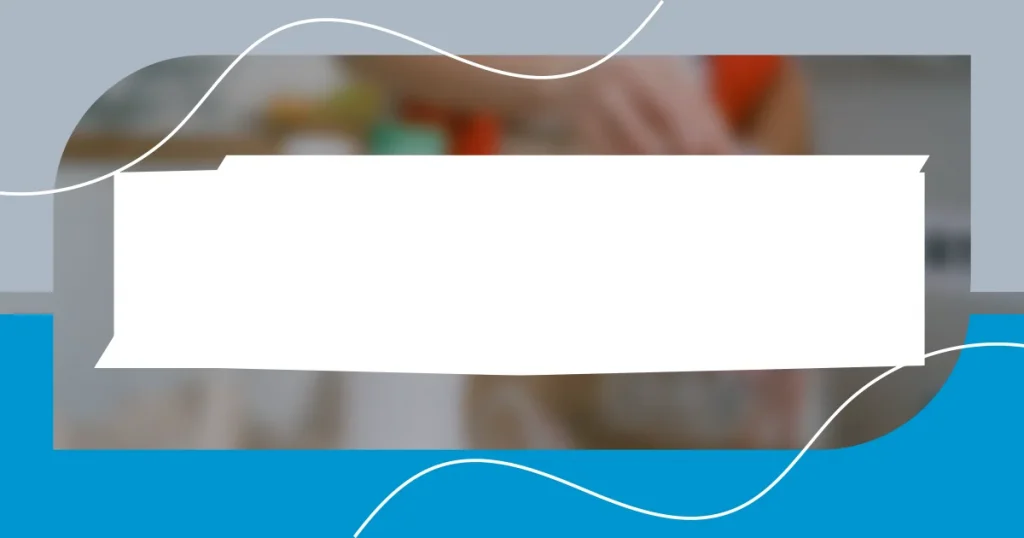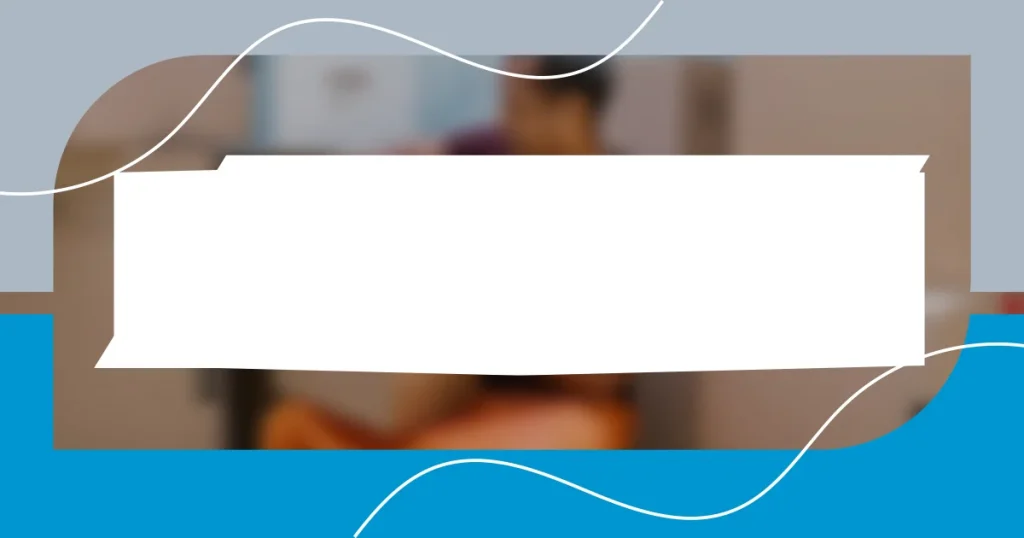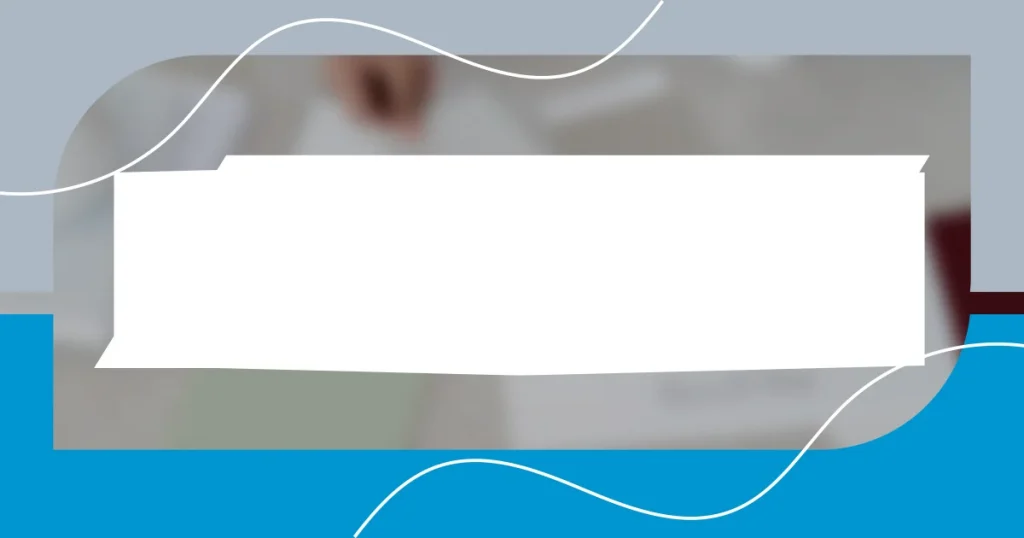Key takeaways:
- Local recycling initiatives enhance community engagement and education, fostering a collective responsibility towards sustainability.
- Participation in recycling brings various benefits, including environmental impact, community pride, and personal empowerment.
- Success stories, such as composting projects and recycling art, illustrate the potential for positive change and community bonding through recycling efforts.
Understanding local recycling initiatives
Local recycling initiatives are fascinating because they often reflect a community’s values and commitment to sustainability. For instance, when I first got involved with my town’s recycling program, I was struck by the passion and dedication people showed. I remember attending a community meeting and hearing stories of how residents actively sought to reduce waste, which made me question how I could contribute further.
What I’ve learned over time is that these initiatives are not just about recycling but also about education and engagement. At one of the local workshops I attended, I watched a volunteer guide participants in a hands-on lesson on sorting recyclables. It was empowering to see how quickly misunderstandings about what could be recycled were cleared up – who knew that pizza boxes could complicate the process?
Emotional connections often drive these programs forward, as people see the direct impact of their efforts. I vividly recall a local cleanup day where neighbors gathered not only to collect litter but also to share their hopes for a cleaner environment for our children. It made me realize that local recycling initiatives are about much more than just managing waste; they’re a catalyst for community bonding and environmental stewardship.
Benefits of participating in recycling
Engaging in recycling not only helps our environment; it can also foster a sense of community pride and responsibility. I’ll never forget the day our neighborhood launched a recycling challenge. Friends and families rallied together, competing to see who could collect the most recyclables over a month. The excitement was palpable, and as we shared our results, I realized how this friendly competition not only reduced waste but also ignited conversations about sustainability within our community.
Participating in recycling offers a multitude of benefits, such as:
- Environmental impact: Reducing landfill waste helps decrease pollution and conserve natural resources.
- Community engagement: Initiatives often bring people together, fostering connections and collaboration.
- Educational opportunities: Local programs frequently provide valuable knowledge about sustainable practices that can be applied at home.
- Economic benefits: Recycling can lead to new jobs and support local economies by creating demand for recycled materials.
- Personal empowerment: Knowing that my small efforts contribute to a larger goal gives me a sense of accomplishment and purpose.
How to find local programs
Finding local recycling programs can be simpler than you might think. I often start by checking my city or town’s official website, where they typically list available services and initiatives. You may also find dedicated sections on community events or local environmental organizations that host workshops or provide resources.
Another method I’ve found useful is connecting with neighborhood groups on social media platforms. Platforms like Facebook or Nextdoor often have community pages where residents share updates and tips about local recycling efforts. I’ve discovered many hidden gems this way, such as swap events and cleanup initiatives, which often kickstart new recycling habits in your daily life.
If you’re still unsure, I recommend visiting your local library or community center, where staff can guide you to resources about recycling programs. In my experience, these centers sometimes host informational sessions that bring together local experts and passionate community members. This not only sheds light on how to recycle effectively but deepens my connection to the community’s sustainability efforts.
| Source | Description |
|---|---|
| City/Town Website | Official listings of local programs |
| Social Media Groups | Community updates and events |
| Libraries/Community Centers | Resource support and info sessions |
Challenges faced by recycling initiatives
One challenge I’ve noticed with local recycling initiatives is the inconsistency in guidelines. For instance, during our recycling competition, I was surprised to learn that not all plastics could be recycled in our town. This confusion can lead to frustration, as many residents are eager to help but feel lost in the specifics of what’s acceptable. How can we expect people to recycle effectively if they don’t even know the rules?
Another issue I’ve encountered is the lack of participation. While some neighbors were enthusiastic, others displayed indifference. I remember chatting with someone who admitted that they didn’t think their efforts would make a difference against the growing pollution problem. It’s disheartening to see such apathy in a community that has so much potential for positive impact. How can we inspire everyone to care when enthusiasm seems so unevenly distributed?
Lastly, I’ve experienced the logistical hurdles that come with recycling programs. During one of our community clean-up days, we had to haul our collected recyclables to a distant drop-off location. The time and effort involved made it inconvenient for many to participate fully. I often wonder, could simple, accessible solutions—like curbside pickup—transform the way we approach recycling in our neighborhoods?
Success stories from local efforts
It’s inspiring to see how local recycling efforts can flourish with the right vision. In my community, we established a neighborhood composting initiative that turned our organic waste into nutrient-rich soil. The initial turnout was modest, but as word spread, more people joined in, and the sense of camaraderie grew. Did you know that turning waste into resources not only reduces landfill issues but brings neighbors together?
One standout success story comes from a local high school that initiated a recycling art project. Students used discarded materials to create stunning sculptures displayed at a community fair. I remember the excitement in their eyes as they showcased their work, demonstrating that recycling can be both practical and creative. Isn’t it fascinating how art can change perceptions about waste?
Additionally, I’ve participated in a monthly clean-up drive that included a recycling component. Over time, engagement surged as residents found pride in our collective achievements. After each event, we’d marvel at how much waste we had diverted from landfills. It really made me think—what else could we accomplish if we harnessed that same community spirit for other eco-friendly initiatives?
Tips for effective recycling
When it comes to effective recycling, understanding the nuances of what can and can’t be recycled is crucial. I learned this the hard way when I found a bin full of items I thought were recyclable, only to discover that many of them weren’t. This experience taught me the importance of educating myself on local guidelines — it not only boosts recycling rates but also minimizes contamination, which can sabotage an entire batch. Have you checked your local recycling rules lately?
Another significant aspect of effective recycling is developing a habit of rinsing out containers before tossing them in the bin. I remember attending a workshop where a presenter emphasized how residue can lead to contamination and spoil recyclables. It sounds tedious, but I changed my routine to incorporate this practice, and I found it made a big difference in my recycling game. Isn’t it amazing how a small effort can lead to much larger impacts?
Lastly, creating a designated recycling station at home has been a game-changer for my family. By transforming a small corner of our kitchen with clearly labeled bins, we’ve made recycling more systematic and engaging. I noticed my kids became more involved, even turning it into a friendly competition to see who could sort the most recyclables. How can a simple setup like this foster a greater sense of responsibility in households?
Future of local recycling programs
As I think about the future of local recycling programs, I can’t help but feel a sense of optimism. Many communities are starting to prioritize education and engagement, which are essential for sustainable change. I remember discussing with my neighbors the potential of hosting regular workshops on recycling practices. Wouldn’t it be wonderful if we could turn this knowledge into a community norm?
Moreover, I see technology playing a pivotal role in enhancing recycling initiatives. In my area, there’s talk of implementing smart bins that can sort waste automatically. The idea of using sensors and AI to separate recyclables from trash is intriguing. Could such innovations not only streamline the recycling process but also make it more efficient and less prone to human error?
Finally, I envision local recycling programs becoming more interconnected with other sustainability efforts. For instance, I’ve joined discussions about merging our recycling initiatives with local farmers’ markets to create a more comprehensive ecosystem. Imagine a community where composting, recycling, and local food systems support each other! This could foster a stronger sense of community and environmental responsibility, wouldn’t you agree?











